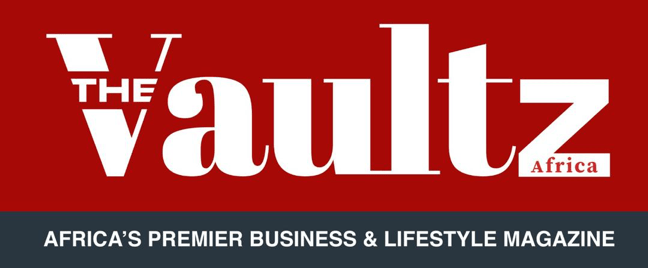
In today’s rapidly evolving banking sector, characterized by shifting customer expectations and technological advancements, traditional banks in Ghana are facing unprecedented challenges to sustain growth and competitiveness. However, amidst these challenges lies a unique opportunity for banks to thrive by embracing the concept of ecosystems, particularly within the realm of housing.
With a focus on housing ecosystems, Ghanaian banks are poised to leverage this transformative approach to not only sustain current mortgage revenues but also cultivate new revenue streams in adjacent sectors. The housing ecosystem, representing one of the world’s largest asset classes, offers an unparalleled opportunity for banks to solidify their position as key orchestrators within this evolving economic paradigm.
At the heart of this shift lies the recognition that homes are not just physical structures but integral components of individuals’ financial portfolios, often representing the most significant investment in their lifetime. For Ghanaian banks, the housing ecosystem presents an asset value several times larger than the mortgage asset alone, making it a strategic focal point for growth and innovation.
In Ghana, as in many other regions, banks have traditionally played a central role in mortgage financing. However, the advent of technology-driven disruptions and the entry of non-traditional players have necessitated a re-evaluation of traditional business models. Increasingly, customers are demanding seamless, personalized experiences, prompting banks to explore innovative solutions that extend beyond conventional mortgage offerings.

Capitalizing On The Potential Of Housing Ecosystems
To capitalize on the potential of housing ecosystems, Ghanaian banks are embracing digitalization and leveraging comprehensive customer data to create integrated, end-to-end solutions for homebuyers. By streamlining the mortgage application process and offering value-added services such as property search capabilities, banks are positioning themselves as holistic partners throughout the housing journey.
Recent trends indicate a global shift towards housing ecosystems, with banks across various regions embracing this strategic approach. In Western Europe, Developed Asia, North America, and Central Europe, a significant percentage of banks are either offering or planning to offer property search capabilities as part of their digital mortgage journey, signalling a growing recognition of the importance of ecosystem integration.
Leading banks worldwide have already begun to reap the rewards of housing ecosystems, with tangible impacts on lead generation and mortgage origination. By leveraging AI-enabled applications and digital platforms, banks have witnessed substantial increases in customer satisfaction and market share. For instance, a multinational European bank’s homebuying app now accounts for over 30 percent of total mortgage origination, while a market-leading bank in Asia-Pacific generates a quarter of its mortgage leads through its housing ecosystem platform.
Crucially, the success of housing ecosystems hinges on a segmented approach that caters to the diverse needs and preferences of different customer segments. Whether targeting first-time buyers seeking guidance or buy-to-let investors requiring detailed financial analyses, banks must tailor their offerings to address specific pain points and aspirations. Iterative experimentation and rapid learning are essential to refining the housing ecosystem and driving continuous improvement.
Far-Reaching Implications
In Ghana’s banking sector, the transition towards housing ecosystems represents a paradigm shift with far-reaching implications. By embracing innovation, harnessing data analytics, and prioritizing customer-centricity, Ghanaian banks can unlock new avenues for growth and differentiation. As they embark on this transformative journey, collaboration with fintech partners, regulatory agility, and a relentless focus on delivering value to customers will be imperative.
Housing ecosystems have the potential to promote social responsibility and equity by addressing affordable housing challenges and supporting inclusive community development initiatives. In Ghana, access to affordable housing remains a pressing issue, particularly for low-income households and vulnerable populations. By designing inclusive mortgage products, rental assistance programs, and housing subsidies, banks can help expand access to safe, decent, and affordable housing for all segments of the population, fostering social inclusion and reducing housing inequality.
Furthermore, housing ecosystems can support community development initiatives that enhance quality of life, promote social cohesion, and empower local residents. By partnering with community-based organizations, non-profit groups, and government agencies, banks can invest in community facilities, green spaces, and social infrastructure projects that improve liveability, enhance resilience, and strengthen social capital within neighbourhoods.
Ensuring Trust in Ghanaian Banking Housing Ecosystems
As Ghanaian banks embark on their journey towards housing ecosystems, one of the paramount concerns they must address is safeguarding data privacy to maintain trust and confidence among customers. The integration of ecosystems involves the collection, storage, and analysis of vast amounts of sensitive personal and financial data, raising significant privacy implications that must be carefully managed in accordance with local and international standards.
The proliferation of digital technologies and the increasing interconnectedness of financial services amplify the importance of robust data privacy measures within housing ecosystems. Customers entrust banks with a wealth of personal information throughout the housing journey, including financial records, property details, and demographic data. Protecting this information from unauthorized access, breaches, and misuse is essential to preserving customer trust and upholding the integrity of the banking ecosystem.
In Ghana, banks must navigate a complex regulatory landscape governing data privacy, including the Data Protection Act, 2012 (Act 843), which regulates the processing of personal data and establishes principles for data protection. Compliance with these regulations requires banks to implement stringent data protection policies, procedures, and technical safeguards to ensure the confidentiality, integrity, and availability of customer data.
Moreover, as Ghanaian banks embrace innovative technologies such as artificial intelligence (AI), machine learning, and big data analytics to enhance the housing journey, they must address unique privacy challenges associated with these technologies. AI algorithms may rely on vast datasets to make informed decisions and recommendations, raising concerns about data transparency, algorithmic bias, and individual autonomy. Banks must implement transparent AI governance frameworks that ensure accountability, fairness, and explainability in algorithmic decision-making processes.
Another critical aspect of data privacy in housing ecosystems is the secure sharing and exchange of data among ecosystem partners, including real estate agents, property developers, insurers, and government agencies. Interoperability and data portability enable seamless integration of services and enhance the overall customer experience, but they also introduce privacy risks related to data sharing, consent management, and data minimization. Banks must establish robust data sharing agreements, encryption protocols, and access controls to protect customer data throughout its lifecycle.
![]()
Expanding Access through Ghanaian Banking Housing Ecosystems
Ghanaian banks have a unique opportunity to advance financial inclusion and expand access to banking services for underserved populations. Housing ecosystems, with their integrated approach to home financing and related services, can serve as a catalyst for broader financial inclusion initiatives by addressing the needs of marginalized communities and individuals who have historically been excluded from traditional banking channels.
In Ghana, access to affordable housing finance remains a significant challenge, particularly for low-income households and informal sector workers. By leveraging housing ecosystems, banks can develop innovative solutions that cater to the diverse needs and financial circumstances of underserved segments of the population. This may involve offering flexible mortgage products, alternative credit scoring mechanisms, and tailored financial education programs to empower individuals to make informed financial decisions.
Moreover, housing ecosystems can facilitate greater access to ancillary services such as insurance, property management, and home improvement financing, which are essential components of sustainable homeownership. By bundling these services within the housing ecosystem framework, banks can create holistic solutions that address the multifaceted needs of aspiring homeowners and contribute to long-term financial stability and resilience.
In addition to serving individual consumers, housing ecosystems can also play a pivotal role in supporting small and medium-sized enterprises (SMEs) in the housing value chain. By providing access to financing, technology platforms, and market linkages, banks can enable SMEs, including construction firms, real estate agents, and housing developers, to thrive and contribute to economic growth and job creation.
Furthermore, housing ecosystems have the potential to leverage innovative technologies such as mobile banking, digital payments, and blockchain to reach remote and underserved communities with limited access to traditional banking infrastructure. By harnessing the power of digital innovation, banks can overcome geographic barriers, reduce transaction costs, and enhance the efficiency and accessibility of financial services for all segments of the population.
To maximize the impact of housing ecosystems on financial inclusion, Ghanaian banks must adopt a proactive and inclusive approach that engages stakeholders across the public and private sectors. This may involve collaborating with government agencies, development organizations, fintech startups, and community-based organizations to design and implement tailored solutions that address the unique needs and challenges of underserved communities.
Moreover, banks must prioritize financial literacy and education initiatives to empower individuals with the knowledge and skills needed to navigate the housing ecosystem and make informed financial decisions. By promoting financial literacy, banks can empower individuals to build assets, manage risks, and achieve their long-term financial goals, thereby fostering greater economic resilience and social inclusion.
The evolution towards housing ecosystems presents Ghanaian banks with a unique opportunity to redefine their role in the financial ecosystem and drive sustainable growth in the digital age. By embracing innovation and prioritizing customer-centricity, banks can position themselves as leaders in the new era of banking, where the integration of ecosystems is not just a strategy but a necessity for long-term success.




